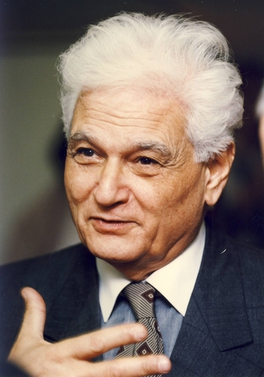
Jacques Derrida was an Algerian-born French philosopher. He developed the philosophy of deconstruction, which he utilized in a number of his texts, and which was developed through close readings of the linguistics of Ferdinand de Saussure and Husserlian and Heideggerian phenomenology. He is one of the major figures associated with post-structuralism and postmodern philosophy although he distanced himself from post-structuralism and disowned the word "postmodernity".

Donald Eugene Cherry was an American jazz trumpeter. Beginning in the late 1950s, he had a long tenure performing in the bands of saxophonist Ornette Coleman, including on the pioneering free jazz albums The Shape of Jazz to Come (1959) and Free Jazz: A Collective Improvisation (1960). Cherry also collaborated separately with musicians such as John Coltrane, Charlie Haden, Sun Ra, Ed Blackwell, the New York Contemporary Five, and Albert Ayler.
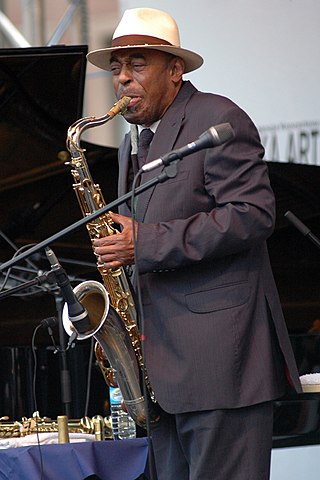
Archie Shepp is an American jazz saxophonist, educator and playwright who since the 1960s has played a central part in the development of avant-garde jazz.

William Robert Dixon was an American composer and educator. Dixon was one of the seminal figures in free jazz and late twentieth-century contemporary music. His was also a prominent activist for artist's rights and African American music tradition. He played the trumpet, flugelhorn, and piano, often using electronic delay and reverb.

Roy Anthony Hargrove was an American jazz musician and composer whose principal instruments were the trumpet and flugelhorn. He achieved worldwide acclaim after winning two Grammy Awards for differing styles of jazz in 1998 and 2002. Hargrove primarily played in the hard bop style for the majority of his albums, but also had a penchant for genre-crossing exploration and collaboration with a variety of hip hop, soul, R&B and alternative rock artists. As Hargrove told one reporter, "I've been around all kinds of musicians, and if a cat can play, a cat can play. If it's gospel, funk, R&B, jazz or hip-hop, if it's something that gets in your ear and it's good, that's what matters."

Hospitality is the relationship of a host towards a guest, wherein the host receives the guest with some amount of goodwill and welcome. This includes the reception and entertainment of guests, visitors, or strangers. Louis, chevalier de Jaucourt describes hospitality in the Encyclopédie as the virtue of a great soul that cares for the whole universe through the ties of humanity. Hospitality is also the way people treat others, for example in the service of welcoming and receiving guests in hotels. Hospitality plays a role in augmenting or decreasing the volume of sales of an organization.
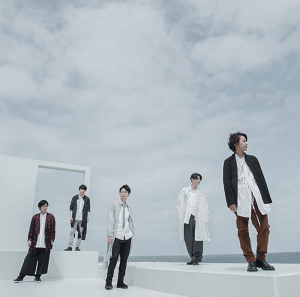
Untitled is the sixteenth studio album by the Japanese idol group Arashi. The album was released on October 18, 2017 under their record label J Storm in two editions: a first press/limited edition and a regular edition. With more than 750,000 copies sold, the album was certified Triple Platinum by the Recording Industry Association of Japan (RIAJ). It was released digitally on February 7, 2020.

Hauntology is a music genre or a loosely defined stylistic feature that evokes cultural memory and aesthetics of the past. It developed in the 2000s primarily among British electronic musicians, and typically draws on British cultural sources from the 1940s to the 1970s, including library music, film and TV soundtracks, psychedelia, and public information films, often through the use of sampling.

Butter Miracle is an EP by Counting Crows. "Elevator Boots" was released as the first single for the four-track EP in April 2021. The full EP, titled Butter Miracle, Suite One, was released on May 21, 2021. A second EP, Butter Miracle, Suite Two, will be released and together form a full album.

And Now... is an album by the Revolutionary Ensemble, violinist Leroy Jenkins, bassist Sirone and drummer Jerome Cooper. It was recorded in June 2004 and released later that year by Pi Recordings. It was the first recording by the group following a hiatus of roughly 25 years.
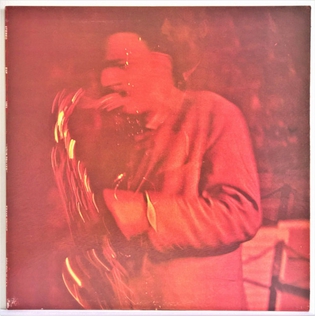
Your Prayer is the second album by saxophonist Frank Wright. It was recorded in May 1967 in New York City and was released by ESP-Disk later that year. On the album, Wright is joined by saxophonist Arthur Jones, trumpeter Jacques Coursil, bassist Steve Tintweiss, and drummer Muhammad Ali. The tracks were reissued in 2005 on the Frank Wright compilation The Complete ESP-Disk Recordings.
Jacques Coursil was a composer, jazz trumpeter, scholar, and professor of literature, linguistics, and philosophy.

Ithaca is an album by bassist Barry Guy, pianist Marilyn Crispell, and drummer Paul Lytton. It was recorded on January 14 and 15, 2003, at Radio Studio DRS in Zurich, Switzerland, and was released in 2004 by Intakt Records.

Black Suite is an album by trumpeter and composer Jacques Coursil. It was recorded in Paris in June 1969, and was released in 1971 by BYG Records as part of their Actuel series. On the album, Coursil is joined by saxophonist Arthur Jones, contrabass clarinetist Anthony Braxton, pianist Burton Greene, bassist Beb Guérin, and drummer Claude Delcloo.

Minimal Brass is an album by trumpeter and composer Jacques Coursil. It was recorded at Fingerlakes Recording in Ithaca, New York in November 2004, and was released in 2005 by Tzadik Records. On the album, Coursil performs fanfares composed of multiple overdubbed parts that employ circular breathing.

Clameurs (Clamors) is an album by trumpeter and composer Jacques Coursil. It was recorded at Fort-de-France in Martinique in the spring and summer of 2006, with additional percussion tracks recorded in Paris and New York City, and was released in 2007 by Universal Music France.
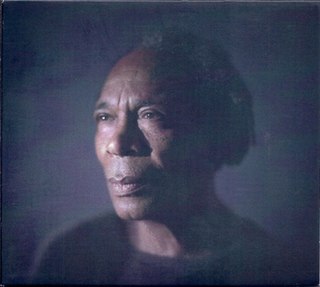
Trails of Tears is an album by trumpeter and composer Jacques Coursil. It was recorded during 2007–2009 in Martinique, France, and the United States, and was released in 2010 by Sunnyside Records and Universal Jazz.

Ave B Free Jam is a live album by drummer Laurence Cook, trumpeters Jacques Coursil and Warren Gale, clarinetist Perry Robinson, and bassist Steve Tintweiss. Consisting of a continuous, extended free improvisation, it was recorded on May 12, 1967, in New York City, and was issued on CD in 2021 by Inky Dot Media.
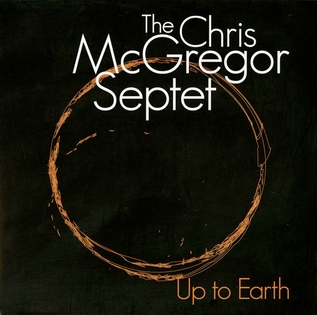
Up to Earth is an album by the Chris McGregor Septet, led by pianist McGregor, and featuring saxophonists Evan Parker, Dudu Pukwana, and John Surman, trumpeter Mongezi Feza, bassists Barre Phillips and Danny Thompson, and drummer Louis Moholo. It was recorded at Sound Techniques in London during 1969, and was released by Fledg'ling Records in 2008.
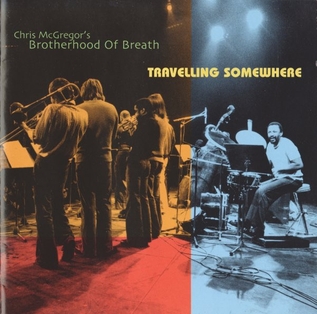
Travelling Somewhere is a live album by South African pianist and composer Chris McGregor's big band Brotherhood of Breath. It was recorded on January 19, 1973, at Lila Eule, a jazz club in Bremen, Germany, and was released by Cuneiform Records in 2001. The recording took place eight days before the concert heard on Live at Willisau.



















